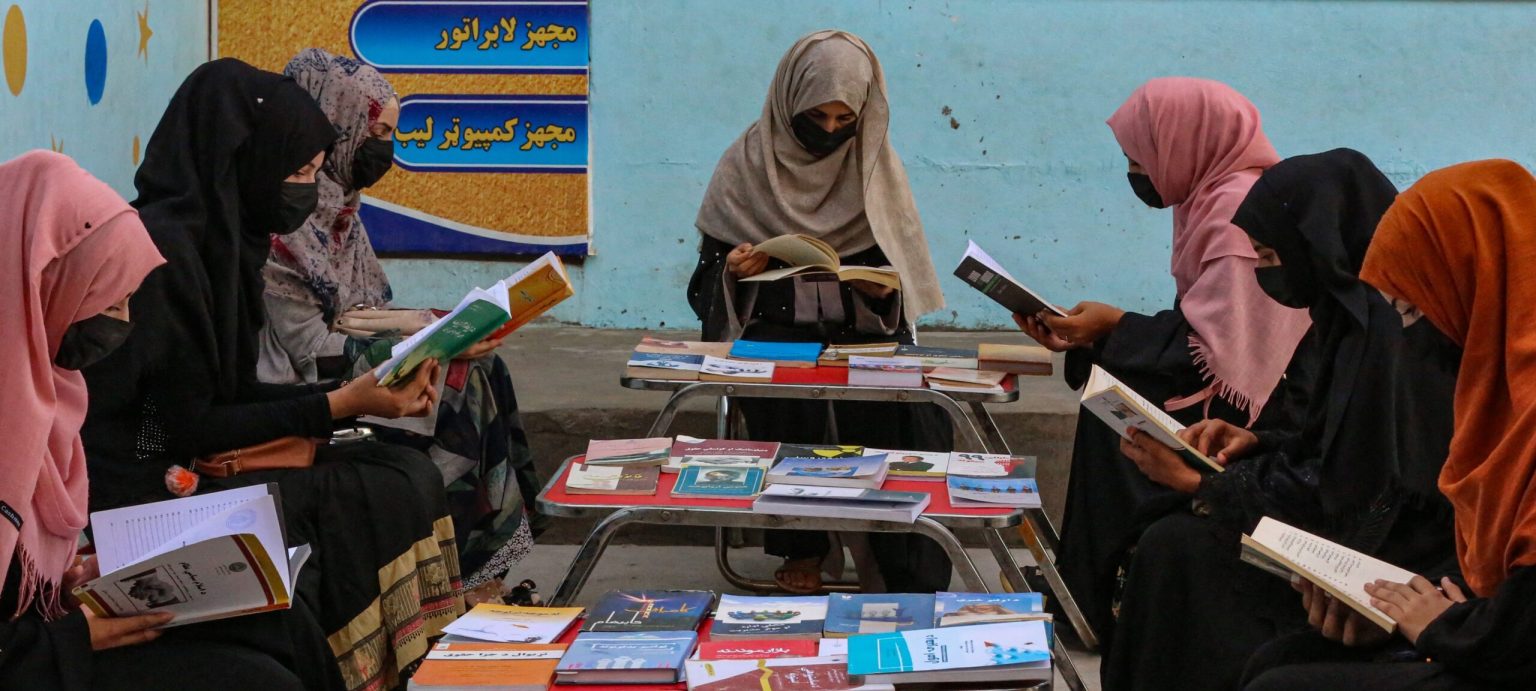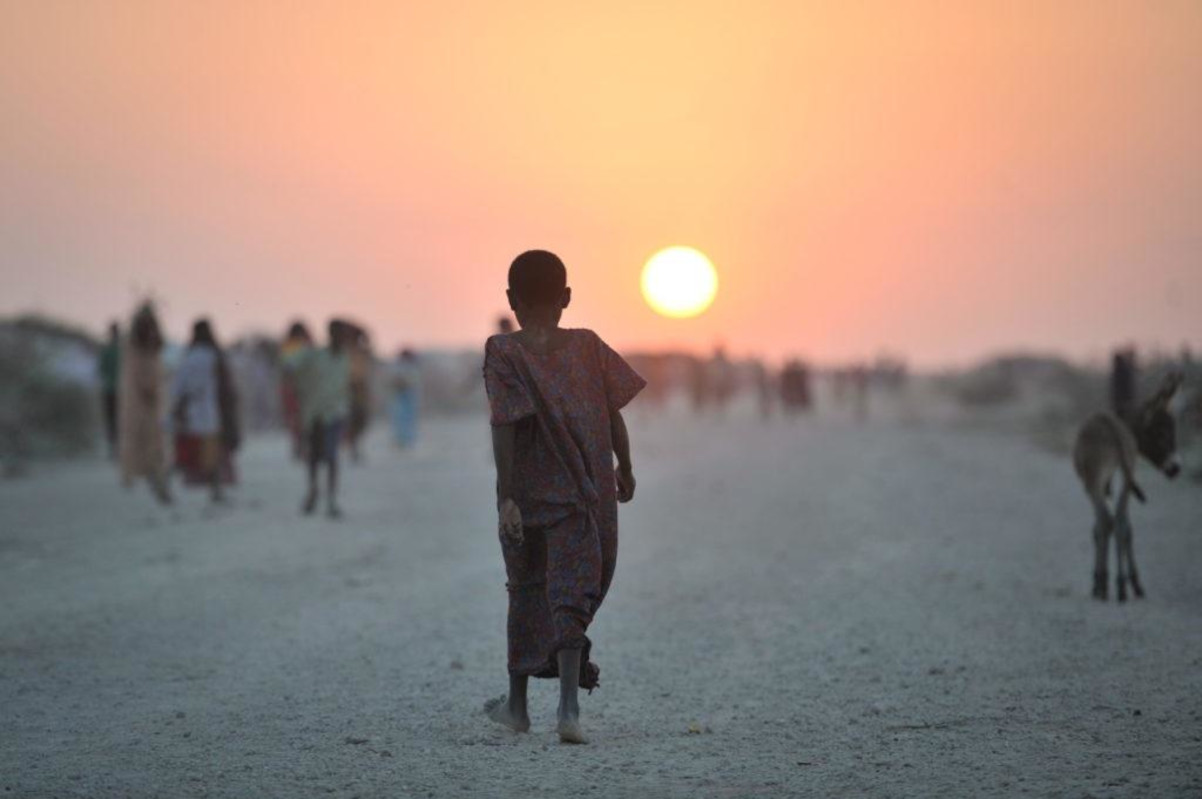The Taliban’s latest edict banning all books authored by women from Afghanistan’s educational institutions represents a calculated act of cultural and gender annihilation designed to erase women’s intellectual presence from the nation’s memory. This systematic erasure of women’s voices demands urgent global action from universities, publishers, and scholars to preserve Afghan women’s works and amplify their perspectives in exile.
The Taliban’s latest edict bans all books authored by women from Afghanistan’s educational system, stripping them from classrooms, universities, and libraries. A panel of Taliban clerics decreed that women’s writings are “anti-sharia and against Taliban policies.” This decision is not just another act of censorship or restriction on Afghan women and girls. It is a calculated act of cultural and gender annihilation, designed to erase women’s intellectual presence from the nation’s memory. It is also part of a broader pattern of cultural genocide that we have seen in other ethnic and religious conflicts.
History teaches us that burning books and silencing voices is never a local act: it reverberates globally. In 1981, the Sri Lankan army burned the Jaffna Public Library, destroying nearly 97,000 volumes, including irreplaceable Tamil manuscripts. It was not just an attack on books; it was an assault on Tamil identity. In 1992, Bosnian Serb forces bombed the National and University Library of Bosnia and Herzegovina, reducing two million works to ash and wiping out centuries of multicultural heritage. In 2015, the so-called Islamic State torched libraries and cultural sites in Mosul, deliberately targeting manuscripts that bound generations of Iraqis together. And in 2001, the Taliban themselves destroyed the Bamiyan Buddhas in response to hatred against the Hazaras. The monuments belonged not just to Afghanistan but to humanity.
These attacks share one aim: to sever a people from their history, their knowledge, and their future. The Taliban’s ban on women’s books goes further, not only erasing culture or religion, it erases women. By outlawing women-authored books, they are declaring that women’s ideas, voices, and perspectives have no place in Afghanistan. It is a systematic and subtle form of violence: silencing thought before it can even be shared. The world’s oldest continuously operating university, Al-Qarawiyyin in Morocco, was founded by a woman, Fatima al-Fihri, a powerful reminder that women have long been central to the creation and preservation of knowledge
Since 2021, the Taliban have issued more than 130 edicts institutionalising discrimination against women and girls. Girls are banned from secondary schools and universities. Women are prohibited from most forms of employment, even humanitarian work. They cannot travel without a male guardian. Parks, gyms, and public baths have been closed to them. Beauty salons, one of the last spaces of independence, have been shuttered. Afghan women’s lives are being systematically stripped of freedom, autonomy, and now, intellectual existence.
Afghan women resist every day, with extraordinary courage. They run underground schools, write in exile, and document abuses at great personal risk. They protest, they advocate, they refuse to disappear. Afghan women in exile amplify these voices globally, demanding recognition of gender apartheid and accountability for those enforcing it. Yet the world has failed them. Beyond symbolic statements of concern, the international community has offered little meaningful action. Governments engage with the Taliban over security, counterterrorism, etc, but remain inaction towards Afghan women and girls.
The Taliban’s ban on women’s book must be recognised for what it is: Misogynist ideologies do not stop at borders. The erasure of all women’s words in Afghanistan sets a dangerous precedent, emboldening every regime that wishes to silence women or censor knowledge.
This is why women scholars and academics worldwide must act. Universities and research institutions must refuse to normalise Taliban policies. They must provide platforms for Afghan women writers and scholars, preserve their works, and make them visible. Academics across disciplines must integrate Afghan women’s perspectives into their teaching and research, so that their ideas cannot be erased, no matter how many bans the Taliban impose. Publishers and archives must protect and circulate women-authored Afghan texts, building an intellectual sanctuary outside the Taliban’s reach.
Solidarity must be more than symbolic. It must translate into sustained advocacy, resources, and visibility. When Afghan women’s voices are silenced at home, they must resound more loudly abroad. When Afghan women are stripped of education and work, global institutions must invest in their scholarship in exile.
Afghan women are fighting not only for their own dignity and survival but also for the universal principle that knowledge has no gender, and that freedom of thought is the foundation of human progress. The question is whether the world, especially women scholars and academics, will stand with them, or whether silence will once again be complicity.
Dr Farkhondeh Akbari is a Research Fellow at Monash University’s ARC Centre of Excellence for the Elimination of Violence Against Women (CEVAW) in Melbourne, Australia. Her research focuses on the roles of diplomatic actors in peace settlement negotiations with non-state armed groups. She has worked at the United Nations headquarters in New York, the Afghanistan Independent Human Rights Commission, and Afghanistan’s Independent Directorate of Local Governance in Kabul. As an activist, Farkhondeh applies her research to champion the rights of women, girls, and minority communities in Afghanistan.
Professor Jacqui True FAIIA FASSA is Professor of International Relations at Monash University and Director of the Australian Research Council Centre of Excellence for the Elimination of Violence against Women (CEVAW).
She received her PhD from York University, Toronto, Canada and has held academic positions at Michigan State University, the University of Southern California, and the University of Auckland. She is a specialist in Gender and International Relations. Her articles on gender mainstreaming and global governance and feminist research methodologies rank among the most highly cited in the field. Her current research is focused on understanding the political economy of post-conflict violence against women and the patterns of systemic sexual and gender-based violence in Asia Pacific conflict-affected countries.
Recent publications include Reframing Conflict-Related Sexual Violence in Security Dialogue with Sara E Davies and Scandalous Economics: The Politics of Gender and Financial Crises (New York: Oxford University Press, 2016) edited with Aida Hozić.
This article is published under a Creative Commons Licence and may be republished with attribution.





